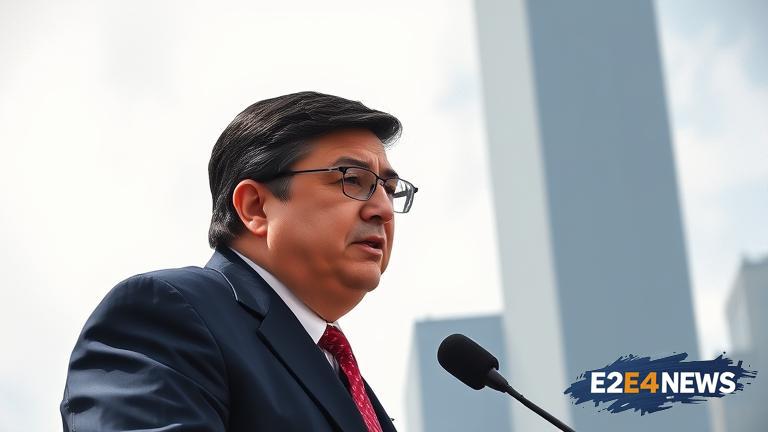The ongoing debate over the deployment of federal troops to Chicago has taken a new turn, with Illinois Governor J.B. Pritzker issuing a stern warning to President Trump against such a move. In a recent statement, Pritzker emphasized that the presence of federal troops in the city would only serve to exacerbate the existing tensions and potentially lead to further violence. The governor’s warning comes in response to President Trump’s earlier announcement that he was considering deploying federal troops to Chicago as part of a broader effort to combat rising crime rates in the city. Pritzker has argued that the deployment of troops would be a misguided and heavy-handed approach, and that it would undermine the efforts of local law enforcement to address the root causes of crime. Instead, the governor has called for a more nuanced and community-based approach, one that prioritizes investment in social programs and community development initiatives. The dispute over the deployment of troops has highlighted the deepening divide between the Trump administration and Democratic lawmakers, with many viewing the move as a blatant attempt to politicize the issue of crime and public safety. Despite the warnings from Pritzker and other local officials, the Trump administration has shown no signs of backing down, with the president continuing to push for a more aggressive approach to combating crime. The situation has sparked widespread concern among civil rights groups and community leaders, who fear that the deployment of troops could lead to a repeat of the violent clashes seen in other cities. As the standoff between the Trump administration and local officials continues, the people of Chicago remain on edge, unsure of what the future holds. The city has already experienced a surge in violent crime in recent months, with many blaming the lack of investment in social programs and community development initiatives. The deployment of troops would only serve to further destabilize the situation, and could potentially lead to a breakdown in trust between law enforcement and the communities they serve. In response to the growing tensions, local officials have called for a more comprehensive approach to addressing the root causes of crime, one that prioritizes investment in education, job training, and community development initiatives. The Illinois governor has also emphasized the need for greater collaboration between federal, state, and local authorities, in order to develop a more effective and sustainable strategy for combating crime. However, the Trump administration’s insistence on deploying troops has raised concerns that the federal government is more interested in scoring political points than in genuinely addressing the needs of the community. As the situation continues to unfold, it remains to be seen whether the Trump administration will heed the warnings of local officials and abandon its plans to deploy troops to Chicago. The city’s residents can only hope that a peaceful resolution can be found, one that prioritizes the needs and safety of the community above all else. The ongoing debate has also highlighted the need for greater transparency and accountability in the decision-making process, with many calling for more open and honest communication between federal, state, and local authorities. Ultimately, the fate of Chicago and its residents hangs in the balance, as the city waits with bated breath to see what the future holds. The deployment of troops would be a drastic and potentially devastating move, one that could have far-reaching consequences for the city and its people. It is imperative that the Trump administration listens to the concerns of local officials and prioritizes a more nuanced and community-based approach to addressing the root causes of crime. By working together and prioritizing the needs of the community, it is possible to develop a more effective and sustainable strategy for combating crime and promoting public safety. The people of Chicago deserve nothing less, and it is the responsibility of their leaders to ensure that their voices are heard and their needs are met. The situation is a complex and multifaceted one, and it will require a comprehensive and collaborative approach to resolve. The Trump administration must be willing to listen to the concerns of local officials and prioritize the needs of the community, rather than pursuing a heavy-handed and divisive approach. Only through a genuine commitment to collaboration and community-based solutions can the city of Chicago hope to address the root causes of crime and promote a safer and more prosperous future for all its residents.
